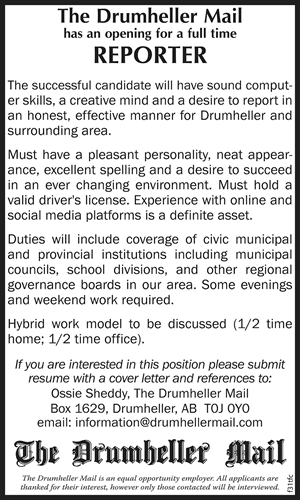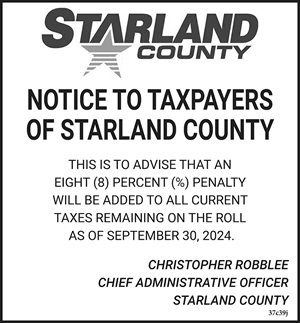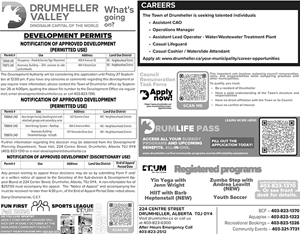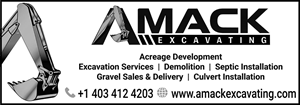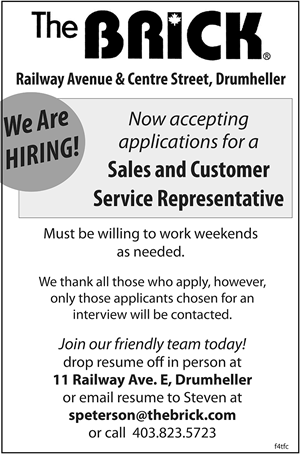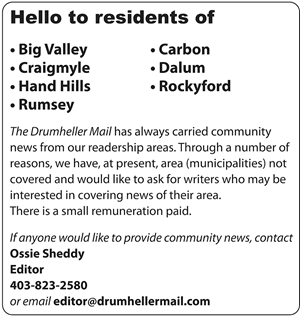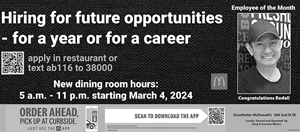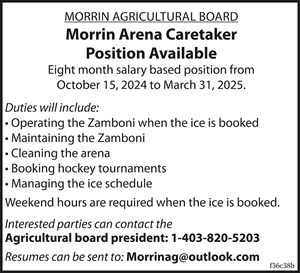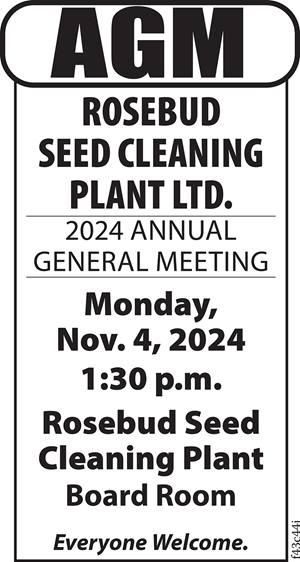.jpg)
Dear Working Wise:
I am about to graduate with a diploma in business administration and I’m eager to find a job. Do you have any tips to help me land my first job? Signed, Eager Graduate
Dear Eager:
Congratulations on completing your program. Alberta is full of opportunity right now with the second-lowest unemployment rate in the country. Here are some tips to help you tap into the opportunities and put your education to good use.
Use your school
Ask the chair of your program for advice and suggestions about where to look for jobs. Put your school’s career services office to work for you. They can usually help you with your resumé and job search and employers interested in hiring new graduates often post jobs on their job boards.
Polish your resumé
Recruiters spend as little as 30 seconds glancing at your resumé—does yours scream “I’m perfect for this job”? Check out the resumé tips on the Alberta Learning Information Service (ALIS) web site at http://bit.ly/ISpj0B. Always include a cover letter with your resumé and use it to quickly explain why you are the perfect candidate for the job. Want an expert opinion on your resumé? Use the free ALIS e-Resumé review service at http://alis.alberta.ca.
Attend job fairs
Did you know that there are job fairs happening all year long around the province? Find out about upcoming job fairs near you at http://employment.alberta.ca/jobfairs.
Like your local Facebook jobs page
Get job opportunities and news of upcoming job fairs sent straight to your Facebook news feed. You can find and like your local Alberta Works Facebook jobs page by clicking on http://bit.ly/IGmZK4.
Network
Fewer than half of all jobs are advertised. Let your network of friends, family, teachers, and former employers know that you are looking for a job. Networking is a great way to tap into the hidden job market. Send everyone you know an email letting them know what kind of job you’re looking for along with a quick summary of your skills, training and experience or a link to your Linked-In profile. And don’t forget to update, clean up, and use your social networking sites.
Expand your job search
Some grads make the mistake of limiting their job search to a specific occupation, industry, or organization type. Take inventory of your transferable skills—like organizational, computer, and time-management skills—and consider opportunities in related occupations and industries. Don’t forget to check out small businesses and not-for-profit organizations.
Register with recruitment agencies
Agencies will not look for a job for you, but they will call you if you are a good match for a position that they are recruiting for. Registering with recruitment agencies is free, takes very little time, and is another great way to tap into the hidden job market. You can start by checking out http://alis.alberta.ca/js/ws/jp/jobpostings/ea.html.
Visit an Alberta Works Centre
Visit your nearest Alberta Works Centre http://humanservices.alberta.ca/offices and ask a Career & Employment Consultant for advice on your job search.
Use ALIS Finding Work
Click on the Job Seekers tab on the ALIS web site http://alis.alberta.ca for more tips on finding a job.
Good luck!
Do you have a work-related question? Send your questions to Working Wise, at charles.strachey@gov.ab.ca. Charles Strachey is a manager with Alberta Human Services. This column is provided for general information.



